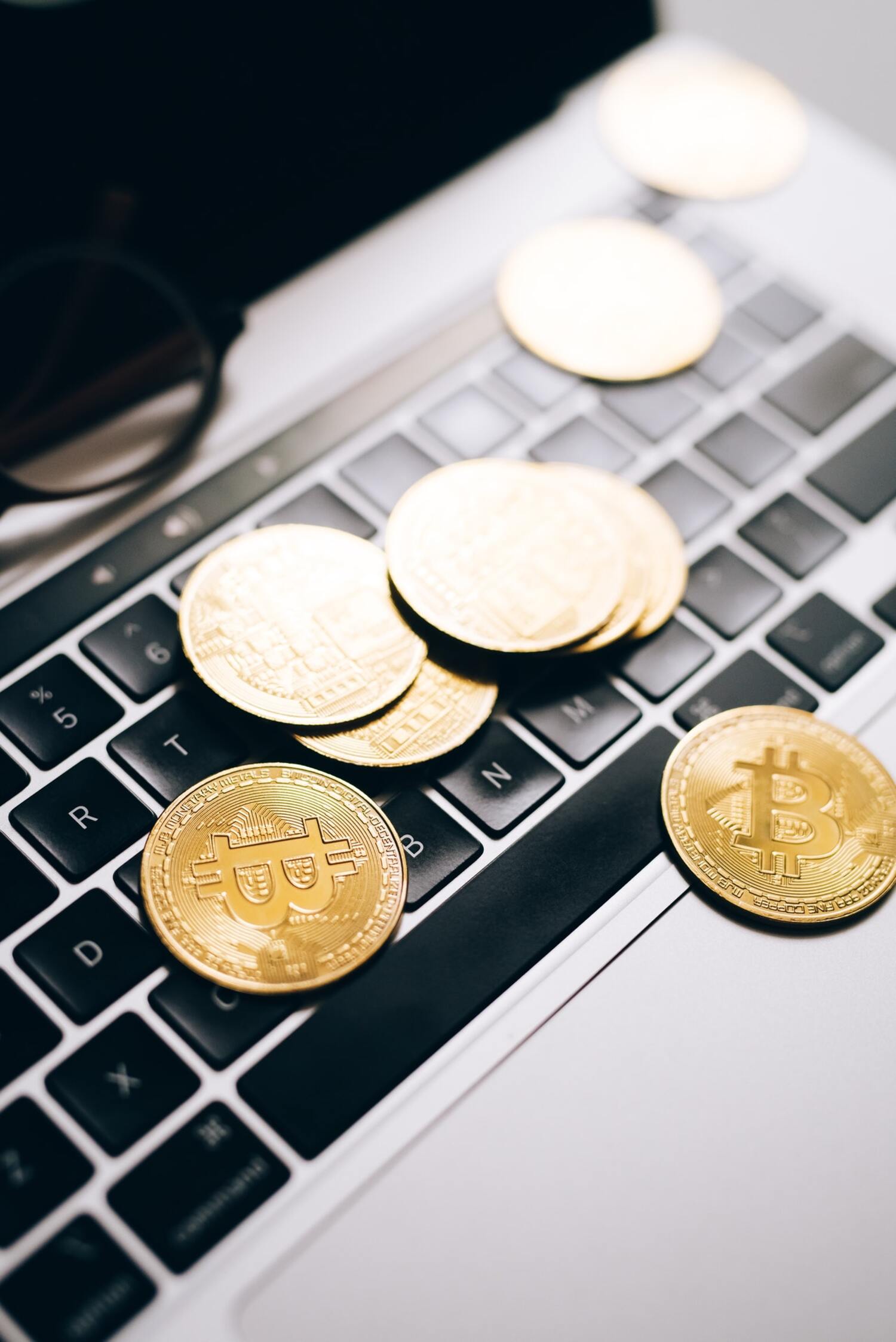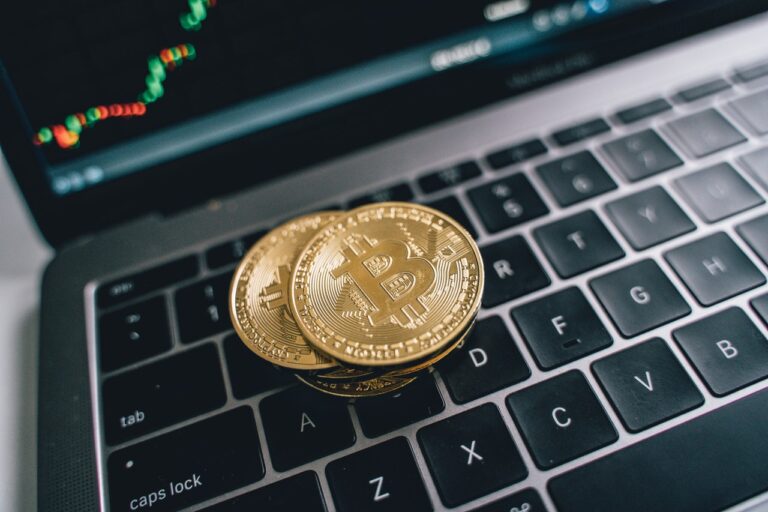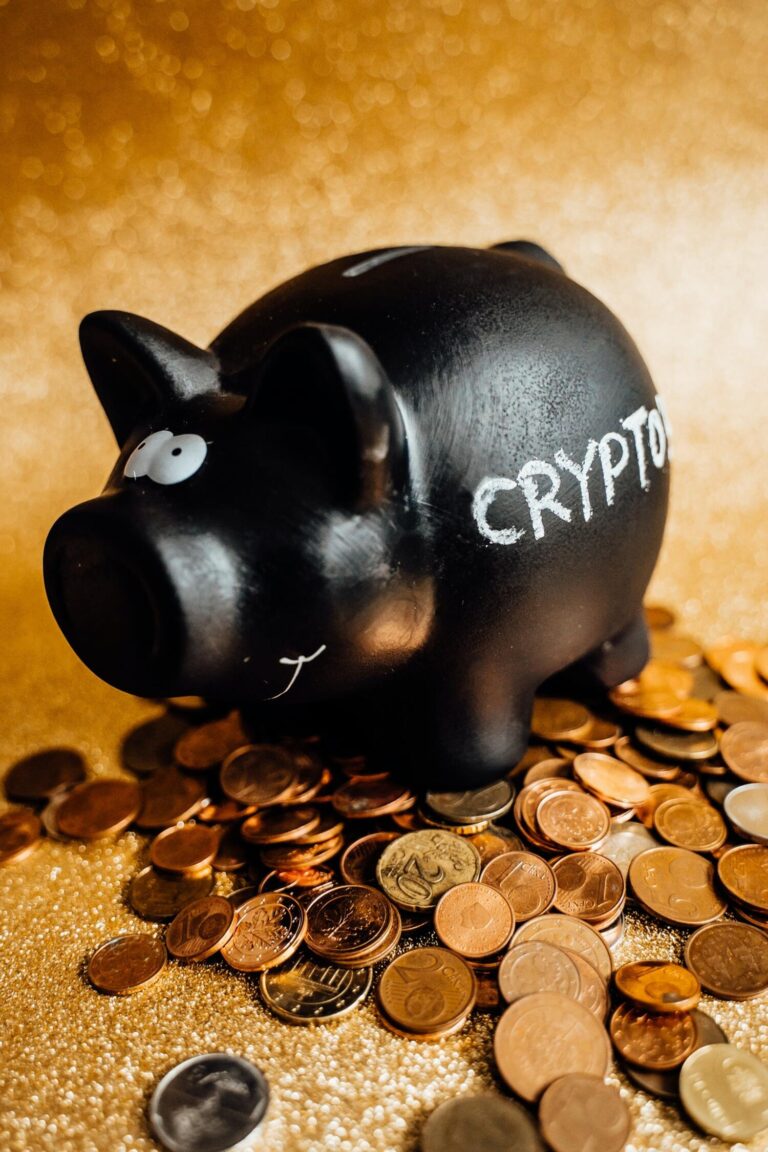Top 30 Cryptocurrencies (Based on Market Cap)

Below is a list of the biggest cryptocurrencies by market cap, according to data from the website
CoinMarketCap . Cryptocurrencies that are available on SoFi Invest® are noted with an asterisk.
1. Bitcoin*
| Market Cap | $641,505,573,940 |
| June 30, 2021 Price | $34,260.40 |
| Circulating Supply | 18,745,206 |
Bitcoin (BTC) was designed to be a digital form of money that is independent of any government or central bank that controls its supply. Instead, the supply of Bitcoin was capped at 21 million by Satoshi Nakamoto.
Bitcoin relies on a network of computers to facilitate transactions. The transactions are logged permanently on the blockchain–an open ledger that everyone on the network can see.
Bitcoin holders have two “keys:” a public one that proves they own Bitcoin, and a private one that acts as a password and ensures only the holder can access their currency.
2. Ethereum*
| Market Cap | $246,294,041,853 |
| June 30, 2021 Price | $2,117.16 |
| Circulating Supply | 116,503,783 |
Ethereum (ETH) was developed in 2013 by a Russian-Canadian teenager named Vitalik Buterin. He aimed to create a cryptocurrency that could utilize smart contracts–ones that self execute based on the defined terms of the agreement.
Similar to Bitcoin, Ethereum aims to connect a decentralized network of computers and record transactions on the publicly available blockchain. Like Bitcoin, Ethereum relies on proof of work for its mining, which means miners perform complex calculations in order to verify transactions, earning new coins in the process.
Ethereum helped fuel initial coin offerings (ICOs) of 2017 since many of the ICOs used Ethereum blockchain. Ethereum has also been behind the boom in non-fungible tokens (NFTs)–digital versions of art or collectibles that are linked to a blockchain and made one-of-a-kind.
3. Tether
| Market Cap | $62,463,121,114 |
| June 30, 2021 Price | $1 |
| Circulating Supply | 62,455,415,418 |
Tether (USDT) was the first cryptocurrency marketed as a “stablecoin”–virtual money designed to maintain a fixed value. In the case of Tether, the value of the coin is pegged to a fiat currency–the U.S. dollar. Hence, its ticker is USDT.
In February 2021, the New York attorney general’s office settled a two-year investigation on tether and its sister crypto exchange Bitfinex. The companies agreed to pay a $18.5 million fine for overstating their reserves and covering up $850 million in losses. Tether had claimed that all its tokens were backed on a one-to-one basis by U.S. dollars in cash reserves.
4. Binance Coin
| Market Cap | $43,791,396,392 |
| June 30, 2021 Price | $284.65 |
| Circulating Supply | 153,432,897 |
Binance is the world’s largest cryptocurrency exchange–popular because of its low trading fees. Binance Coin (BNB) is the cryptocurrency “native” to the exchange, which means that it was designed specifically to be used in the Binance ecosystem. Binance Coin launched in 2017 with an ICO.
Binance tries to incentivize investors to use Binance Coin by allowing them to get a 25% discount on trading fees if they use BNB to pay for trades. That means if your trading fee totals $1 for a trade, it’d only be 75 cents if you paid with BNB.
Another key fact for investors to know about BNB is that every quarter, Binance uses 20% of its profit to buy back and “burn” Binance Coins–a process that involves erasing them forever. Originally spelled out in a whitepaper, this system is designed to keep the supply of BNB low and will be done until 100 million coins–50% of the total–are destroyed.
5. Cardano*
| Market Cap | $41,876,184,686 |
|---|---|
| June 30, 2021 Price | $1.31 |
| Circulating Supply | 31,946,328,269 |
Cardano (ADA) was created by Charles Hoskinson, a co-founder of Ethereum who also has a popular YouTube channel. Cardano can’t yet run decentralized finance (DeFi) projects that let users lend, trade and borrow money with each other. But it recently had an upgrade in March, and smart contracts are expected to later in 2021.
While Cardano lacks some features, it’s considered by some market participants to be a work in progress and has the potential to be a cheaper alternative to Ethereum in being a basis for DeFi and NFT projects. It’s developed a loyal following on social media platforms like Reddit, similar to so-called meme stocks.
A key feature of ADA is that it has a proof-of-stake blockchain. This means the complicated proof-of-work calculations and high electricity usage required for mining coins like Bitcoin aren’t necessary. Instead, all ADA coins are pre-mined. That could make Cardano appealing to investors who have been critical of the environmental costs of cryptocurrencies like Bitcoin.
6. Dogecoin*
| Market Cap | $31,646,744,193 |
|---|---|
| June 30, 2021 Price | $0.2429 |
| Circulating Supply | 130,234,209,886 |
Dogecoin had a meteoric rise in 2021, surging through the month of May. The cryptocurrency was started as a joke by its founders in 2013. One of Dogecoin’s most notable features is that it has a Shiba Inu dog on its symbol.
Dogecoin enjoyed popularity in a pattern similar to the way meme stocks did in 2020. Tesla CEO Elon Musk was an advocate of Dogecoin, touting it on social media. On June 1, cryptocurrency exchange Coinbase said it would accommodate Dogecoin, signaling more mainstream acceptance of the cryptocurrency.
7. XRP
| Market Cap | $30,462,825,137 |
|---|---|
| June 30, 2021 Price | $0.6577 |
| Circulating Supply | 46,146,927,647 |
Ripple XRP was developed by Ripple Labs Inc. Unlike Bitcoin and many other cryptocurrencies, XRP is not on a blockchain network. Instead, it’s based on what’s called a “hash tree.” This means XRP can’t be mined and instead there are a limited number of coins–100 billion to be exact. Ripple network can process 1,500 transactions per second.
In 2020, the Securities and Exchange Commission sued Ripple and its executives for allegedly misleading investors in XRP by selling more than $1 billion of the virtual tokens without registering with the regulator.
8. USD Coin
| Market Cap | $25,203,864,990 |
| June 30, 2021 Price | $1 |
| Circulating Supply | 25,202,767,808 |
USD Coin (USDC) is a stablecoin powered by Ethereum blockchain that is pegged to the U.S. dollar. USD Coin is also linked to the cryptocurrency startup known as Circle. After the stablecoin Tether came under regulatory trouble for how much it actually backs in reserves, Circle has said its reserves are evaluated and audited by Chicago-based accounting firm Grant Thornton LLP.
In March 2021, Visa announced that it would allow the use of USDC to settle transactions on its payment network–a sign of mainstream acceptance of the crypto market. The move allowed for customers to pay for purchases using a Visa credit card without digital currencies first needing to be converted into traditional money.
9. Polkadot
| Market Cap | $14,624,503,052 |
| June 30, 2021 Price | $15.30 |
| Circulating Supply | 956,244,736 |
Polkadot’s coin is called dot (DOT). Polkdot’s creator Gavin Wood is also the co-founder of Ethereum. He wrote the original white paper for Polkadot in 2016.
Central to Polkadot are “parachains”–blockchains that can run higher transaction throughput than Ethereum through design. “Parallel blockchains”–transactions that are spread across multiple computers, similar to parallel processing–have also been touted as having potential as an alternative to Ethereum.
10. Binance USD
| Market Cap | $10,109,402,513 |
| June 30, 2021 Price | $0.9998 |
| Circulating Supply | 10,109,425,905 |
Binance USD (BUSD) is a stablecoin that is issued by Binance, the world’s largest cryptocurrency exchange. It’s pegged to the U.S. dollar on a one-to-one basis. It runs on the Ethereum network so can be accepted everywhere for payments or loans where other ERC-20 tokens are.
11. Uniswap*
| Market Cap | $9,995,097,737 |
| June 30, 2021 Price | $17.32 |
| Circulating Supply | 575,244,185 |
Decentralized exchanges (DEX) are trading platforms that require users to hand over the keys of the coins, so without depositing or withdrawing cryptocurrencies. The system relies on smart contracts and is a feature of the DeFi movement.
Uniswap is estimated to be the largest DeFi exchange, and it’s popular for strategies like “yield farming,” where cryptocurrencies are lent out in exchange for interest. Founded by Hayden Adams, Uniswap is an exchange that has raised money from venture-capital firms like Andreesen Horowitz and Union Square Ventures.
Uniswap (UNI) is the token native to the platform. While market cap growth has been tremendous, it also hasn’t been without hiccups. In August 2020, an anonymous group copied Uniswap’s code and crimped the DEX’s liquidity.
12. Bitcoin Cash*
| Market Cap | $9,472,408,895 |
| June 30, 2021 Price | $503.84 |
| Circulating Supply | 18,777,488 |
Bitcoin Cash (BCH) launched in August 2017 after a controversial fork in which a faction of coders criticized the original Bitcoin’s network for being too slow and expensive.
The technology underpinning Bitcoin Cash is similar to that of Bitcoin, but changes were made during the fork to make transactions faster and lower fees. For instance, the BCH network can support more than 23 million transactions in a single day. That’s smaller than the 2 trillion transactions that Visa can handle, but far more than the 600,000 transactions that Bitcoin can facilitate.
However, this increased transaction capability hasn’t been taken advantage of by the market. In general, while it was created to rival Bitcoin, BCH hasn’t had the same popularity and has suffered deep declines in its price. Bitcoin Cash’s market cap is still a fraction of Bitcoin’s. However, it’s also still one of the most successful coins that have developed from a hard fork.
13. Litecoin*
| Market Cap | $9,193,856,401 |
| June 30, 2021 Price | $137.72 |
| Circulating Supply | 66,752,415 |
Created in 2011, Litecoin was one of the earliest altcoins. New blocks on the Litecoin network are generated every 2.5 minutes, four times as fast as the Bitcoin network, where blocks are mined in 10 minutes.
Founder Charles Lee has said he designed Litecoin to be a compliment to Bitcoin, not as a replacement. In 2019, Litecoin rallied ahead of a halving. Charles Lee cashed out on his holdings in 2017, the last time cryptocurrencies peaked.
14. Solana
| Market Cap | $8,731,513,592 |
| June 30, 2021 Price | $32.12 |
| Circulating Supply | 272,637,428 |
Consensus is reached on various blockchains when members solve a mathematical puzzle, a process called “proof of work.” Miners have then rewarded coins for their work, a process that’s energy-intensive and has been criticized for its environmental impact. It’s why Elon Musk did a U-turn on Tesla accepting Bitcoin as payment.
As mentioned, some coins are switching to “proof of stake,” a less energy-intensive process. But Solana creator Anatoly Yakovenko, a former engineer at Qualcomm, had an idea for “proof of history,” which timestamps transactions and disables the ability of miners to decide which transactions get recorded on the blockchain. Yakovenko has claimed the network can be as fast as “the speed of light.”
15. Chainlink*
| Market Cap | $8,038,538,683 |
| June 30, 2021 Price | $18.49 |
| Circulating Supply | 435,509,554 |
Chainlink’s blockchain network aims to provide a link between real-world data and smart contracts. Its cryptocurrency is known as LINK, and it’s used to pay for smart contract transactions. As mentioned, smart contracts are agreements on the blockchain that automatically complete upon the filling of necessary preconditions.
In cryptocurrency markets, outside data sources are called oracles. Chainlink helps connect those outside data sources and the blockchain.
16. Polygon
| Market Cap | $6,920,008,608 |
| June 30, 2021 Price | $1.10 |
| Circulating Supply | 6,303,422,325 |
Polygon, formerly known as Matic Network, is an India-based cryptocurrency that was created in 2017. It aims to solve issues found on the Ethereum network, such as congestion and high transaction fees.
17. Wrapped Bitcoin
| Market Cap | $6,650,827,175 |
| June 30, 2021 Price | $34,290.76 |
| Circulating Supply | 194,125 |
Wrapped Bitcoin (WBTC) is a token that represents Bitcoin on the Ethereum blockchain. One Wrapped Bitcoin equals one Bitcoin.
However, WBTC tokens can be used with Ethereum’s decentralized apps and decentralized finance ecosystem. Another feature of Wrapped Bitcoin is its transaction speed since it runs on the Ethereum blockchain.
18. THETA
| Market Cap | $6,551,813,342 |
| June 30, 2021 Price | $6.57 |
| Circulating Supply | 1,000,000,000 |
Theta posted massive gains in 2021. The Theta Network describes itself as a “decentralized streaming video protocol”–in essence, aiming to use blockchain technology to allow users to contribute excess bandwidth and computing resources in exchange for tokens.
Theta.tv was slated to be included in future Samsung Galaxy phones and the software added to 75 million existing devices.
19. Stellar*
| Market Cap | $6,271,627,310 |
| June 30, 2021 Price | $0.2722 |
| Circulating Supply | 23,207,246,068 |
The Stellar network’s cryptocurrency is called lumen and trades under the symbol XLM. Stellar is a blockchain-based ledger that aims to connect banks and payment systems to facilitate low-cost, cross-border transfers.
Created by a co-founder of Ripple, Stellar says its focus is bank loans in developing economies or providing services to individuals outside the traditional banking system.
20. Ethereum Classic*
| Market Cap | $6,089,904,070 |
| June 30, 2021 Price | $52.45 |
| Circulating Supply | 116,313,299 |
Ethereum Classic (ETC) maintains the original, unaltered history of the Ethereum network. The new Ethereum network (ETH) was created in 2016 after a hack.
Daily active users of ETH far surpasses that of ETC, roughly close to 1 million versus in the tens of thousands. Ethereum Classic’s network has also experienced 51% attacks, suggesting it’s less secure. While lacking any standout technology, Ethereum Classic experienced a resurgence in 2021 speculated that it may come back in favor if Ethereum or ETH moves to a proof-of-stake protocol, as opposed to the more traditional proof-of-work.
21. Internet Computer
| Market Cap | $6,067,833,949 |
| June 30, 2021 Price | $45.02 |
| Circulating Supply | 135,173,634 |
Internet Computer’s creator Dfinity Foundation is backed by Silicon Valley venture-capital firm Andreesen Horowitz. The basis for Internet Computers is to create apps and websites, recreating the web in a more decentralized form.
For this reason, some argue that Internet Computer is more useful as a blockchain technology network that powers apps than as a cryptocurrency. The platform allows anyone to create software on the Internet using its blockchain technology.
| Market Cap | $5,386,070,570 |
| June 30, 2021 Price | $1 |
| Circulating Supply | 5,383,336,912 |
Dai is another stablecoin with a one-to-one ratio to the U.S. dollar. Unlike some other stablecoins however, Dai aims for an even greater degree of decentralization.
For instance, Tether tries to back cryptocurrencies backed by a reserve, which is managed by a central body. Dai aims to use smart contracts instead to maintain the peg to the U.S. dollar.
23. Vechain
| Market Cap | $5,346,751,563 |
| June 30, 2021 Price | $0.08354 |
| Circulating Supply | 64,315,576,989 |
Founded in 2015 by the former chief information officer of Louis Vuitton China, VeChain focuses on improving supply chain management and business operations with blockchain.
It has two tokens: VeChain (VET) and VeChainThro Energy (VTHO). The former is designed to transfer value across the blockchain network, while the latter aims to use energy or “gas” to power smart contracts.
24. Filecoin*
| Market Cap | $4,820,709,413 |
| June 30, 2021 Price | $58.11 |
| Circulating Supply | 83,612,398 |
Filecoin aims to be a decentralized storage network that maximizes data storage and retrieval. The Filecoin network aims to connect storage and retrieval miners with clients who pay to store and retrieve data.
Participants in the Filecoin network send tokenized rewards in the form of Filecoin for providing services on the network. The network uses specialized proofs to verify the quantitative and types of files on the network. Grayscale, a manager of cryptocurrency investment trusts, added Filecoin to one of its products in March.
25. TRON
| Market Cap | $4,638,835,632 |
| June 30, 2021 Price | $0.06478 |
| Circulating Supply | 71,659,657,369 |
Tron is the cryptocurrency of Tron Foundation, a blockchain company that on its website says it is “dedicated to building the infrastructure for a truly decentralized Internet.” A report from the media outlet Verge reported that much of Tron’s original white paper overlaps with the white paper for Ethereum.
Tron uses something known as a delegated proof-of-stake to reach consensus on its ledger, unlike the traditional “proof-of-work” methods used by many cryptocurrencies including Bitcoin. Twenty-seven “super representatives” achieve consensus, with the representatives rotating regularly. The process is designed to be less energy-intensive.
Tron’s founder Justin Sun is known for acquiring BitTorrent, a peer-to-peer file-sharing service.
26. Monero
| Market Cap | $3,826,701,458 |
| June 30, 2021 Price | $212.77 |
| Circulating Supply | 17,942,846 |
Bitcoin leaves a visible trail of transactions on its blockchain. Monero is a privacy coin, hiding the senders, receivers as well as the transaction amount. Monero is increasingly used by criminals for illicit payments and money laundering. It’s also popular when hackers are cryptojacking.
The original white paper for Monero in 2014 argues that Bitcoin’s visibility of transactions was a “critical flaw.” Monero could come under greater regulatory scrutiny especially after high-profile ransomware incidents like the Colonial Pipeline and meatpacking plants hacking in the U.S.
Monero has outperformed Bitcoin since the beginning of 2020. The US Internal Revenue Service has offered a $625,000 award for anyone able to develop tools to trace Monero. It’s tougher to trade on bigger cryptocurrency exchanges, given authorities insisting they have higher Know Your Customer (KYC) standards.
27. EOS
| Market Cap | $3,722,430,916 |
| June 30, 2021 Price | $3.91 |
| Circulating Supply | 954,781,934 |
EOS is a blockchain-based system that aims to allow the development of dApps on its platform. It’s sometimes seen as a competitor to Ethereum, which remains more popular. It has a platform focused on smart contracts and tries to eliminate transaction fees and conduct millions of transactions per second.
28. Shiba Inu
| Market Cap | $3,276,672,704 |
| June 30, 2021 Price | $0.000008292 |
| Circulating Supply | 394,796,000,000,000 |
Created in August 2020 by an anonymous person known as Ryoshi, Shiba Inu is on the ERC-20 token on the Ethereum blockchain. While Shiba Inu is inspired by Dogecoin, which features a Shiba Inu dog on its logo, the cryptocurrency also calls itself a “Dogecoin killer.”
Shiba Inu does not have smart contract capability nor is it backed by any assets or rights. There’s also no defining technology or limited supply. Instead, Shiba Inu has enjoyed popularity in the cryptocurrency market during 2020 in the pattern that some meme stocks do.
29. Aave*
| Market Cap | $6,153,754,357 |
| June 30, 2021 Price | $482.36 |
| Circulating Supply | 12,754,905 |
Aave is on the Ethereum network and focuses on DeFi lending. It basically aims to let users lend and borrow a range of crypto assets, while sometimes earning interest.
30. Crypto.com Coin
| Market Cap | $2,780,265,388 |
| June 30, 2021 Price | $0.11 |
| Circulating Supply | 25,263,013,692 |
Crypto.com Coin is the native token of Crypto.com, an exchange that tries to be a network to payment cryptocurrency projects. Crypto.com tends to be much cheaper than exchange competitors like Coinbase.
The Takeaway
Altcoins, Privacy Coins, Stablecoins, DeFi Coins–the cryptocurrency market has proliferated and diversified since Bitcoin was first introduced in 2009. One way investors can evaluate different coins and tokens in the cryptocurrency world is by looking at the market cap, which can give a sense of the size and popularity.
On the SoFi Invest, investors can trade cryptocurrencies like Bitcoin, Ethereum, Cardano, Uniswap, and Chainlink 24/7: weekends, holidays, middle of the night. Furthermore, on the mobile app, investors can trade cryptocurrencies alongside the company stocks, exchange-traded funds (ETFs), and fractional shares that they already own. Learn more from SoFi about the different types of cryptocurrency and open an account today.
Disclaimer:
SoFi Invest®
The information provided is not meant to provide investment or financial advice. Investment decisions should be based on an individual’s specific financial needs, goals and risk profile. SoFi can’t guarantee future financial performance. Advisory services offered through SoFi Wealth, LLC. SoFi Securities, LLC, member FINRA / SIPC . SoFi Invest refers to the three investment and trading platforms operated by Social Finance, Inc. and its affiliates (described below). Individual customer accounts may be subject to the terms applicable to one or more of the platforms below.
1) Automated Investing—The Automated Investing platform is owned by SoFi Wealth LLC, an SEC Registered Investment Advisor (“Sofi Wealth“). Brokerage services are provided to SoFi Wealth LLC by SoFi Securities LLC, an affiliated SEC registered broker dealer and member FINRA/SIPC, (“Sofi Securities).
2) Active Investing—The Active Investing platform is owned by SoFi Securities LLC. Clearing and custody of all securities are provided by APEX Clearing Corporation.
3) Cryptocurrency is offered by SoFi Digital Assets, LLC, a FinCEN registered Money Service Business.
For additional disclosures related to the SoFi Invest platforms described above, including state licensure of Sofi Digital Assets, LLC, please visit www.sofi.com/legal. Neither the Investment Advisor Representatives of SoFi Wealth, nor the Registered Representatives of SoFi Securities are compensated for the sale of any product or service sold through any SoFi Invest platform. Information related to lending products contained herein should not be construed as an offer or pre-qualification for any loan product offered by SoFi Lending Corp and/or its affiliates.
Crypto: Bitcoin and other cryptocurrencies aren’t endorsed or guaranteed by any government, are volatile, and involve a high degree of risk. Consumer protection and securities laws don’t regulate cryptocurrencies to the same degree as traditional brokerage and investment products. Research and knowledge are essential prerequisites before engaging with any cryptocurrency. US regulators, including FINRA , the SEC , and the CFPB , have issued public advisories concerning digital asset risk. Cryptocurrency purchases should not be made with funds drawn from financial products including student loans, personal loans, mortgage refinancing, savings, retirement funds or traditional investments.
Third Party Brand Mentions: No brands or products mentioned are affiliated with SoFi, nor do they endorse or sponsor this article. Third party trademarks referenced herein are property of their respective owners.
External Websites: The information and analysis provided through hyperlinks to third party websites, while believed to be accurate, cannot be guaranteed by SoFi. Links are provided for informational purposes and should not be viewed as an endorsement.
SOIN0521188
This story originally appeared on SoFi.





